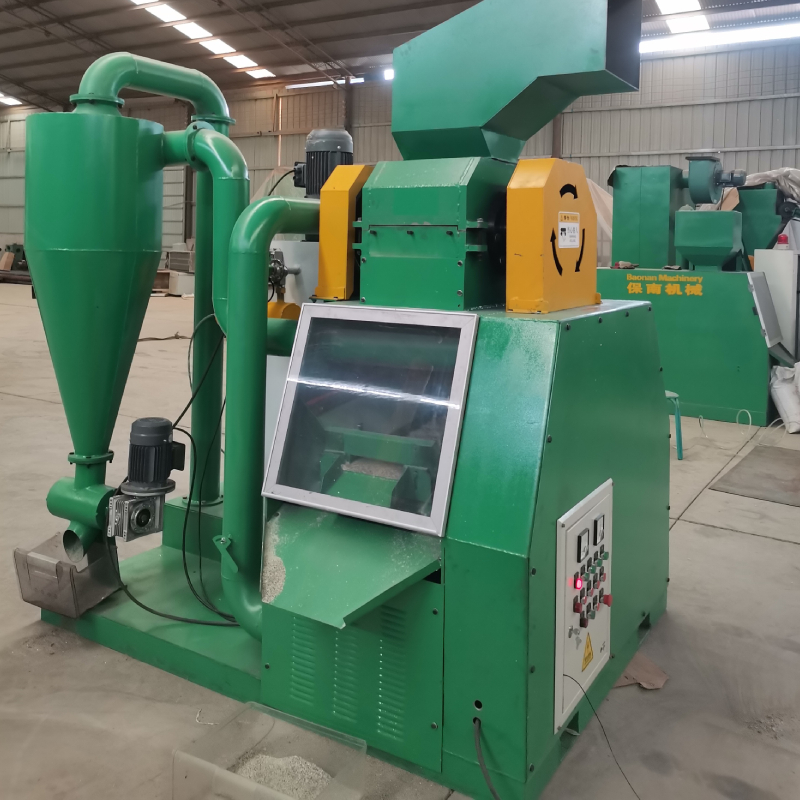

nóv . 25, 2024 12:06 Back to list
The Importance of Steel Recycling Plants
Steel is one of the most widely used materials in the world, playing a crucial role in various industries including construction, automotive, and manufacturing. As the global demand for steel continues to rise, the importance of recycling this valuable resource cannot be overstated. Steel recycling plants have emerged as vital hubs in this process, transforming scrap metal into new, usable steel products while conserving natural resources and minimizing environmental impact.
The Recycling Process
At a steel recycling plant, the journey begins with the collection of scrap steel. This can include old vehicles, construction debris, household appliances, and industrial waste. Once collected, the scrap is transported to the recycling facility where it undergoes several processes. Initially, the scrap is sorted to remove any non-metallic materials such as plastic, rubber, and wood. Magnetic and non-magnetic separation techniques are employed, ensuring that only high-quality steel remains.
After sorting, the steel is shredded into smaller pieces, increasing the surface area and making it easier to melt. The shredded metal is then melted in a large furnace at high temperatures. It is at this stage that the steel can be cleaned and refined, removing impurities that may affect the quality of the end product. Finally, the molten steel is poured into molds to form new products or is rolled into sheets, bars, or other shapes, ready to be delivered to manufacturers.
Environmental Benefits
Steel recycling plays a crucial role in reducing the environmental impact associated with steel production. Traditional steel manufacturing is energy-intensive and produces significant amounts of greenhouse gases. In contrast, recycling steel requires about 75% less energy than producing new steel from raw materials. This reduction in energy consumption directly translates to lower carbon emissions, making steel recycling an essential part of global efforts to combat climate change.

Additionally, recycling steel helps decrease the demand for virgin iron ore and other raw materials. The extraction and processing of these materials can be detrimental to the environment, leading to habitat destruction, soil erosion, and water pollution. By recycling steel, we are effectively conserving natural resources and reducing the ecological footprint of steel production.
Economic Benefits
In addition to environmental advantages, steel recycling plants contribute significantly to the economy. These facilities create jobs across various sectors, from collection and processing to transportation and sales. The recycling industry not only provides employment opportunities but also stimulates local economies by supporting businesses that rely on recycled materials for their operations.
Furthermore, the steel recycling process generates significant revenue. Scrap steel has considerable market value; thus, recycling operations can profit from purchasing scrap metal at a lower cost and selling the finished products at a higher price. This economic model promotes a circular economy, where materials are reused and repurposed, reducing waste and driving economic growth.
Conclusion
Steel recycling plants are indispensable to modern society, offering a sustainable solution to the increasing demand for steel. They not only conserve natural resources and reduce environmental impact but also contribute to economic growth and job creation. As we continue to face the challenges of resource depletion and climate change, the role of steel recycling will become even more critical. Investing in and supporting these facilities is essential for building a more sustainable future, ensuring that steel remains a resource that benefits both people and the planet for generations to come. By embracing steel recycling, we take a significant step toward achieving a more sustainable and responsible industrial landscape.
Latest news
Troubleshooting Common Eddy Separator Problems
NewsJul.04,2025
The Role of Metal Recycling Plants in Circular Economy
NewsJul.04,2025
The Impact of Recycling Line Pickers on Waste Management Costs
NewsJul.04,2025
Safety Features Every Metal Shredder Should Have
NewsJul.04,2025
How Industrial Shredders Improve Waste Management Systems
NewsJul.04,2025
How Cable Granulators Contribute to Sustainable Recycling
NewsJul.04,2025